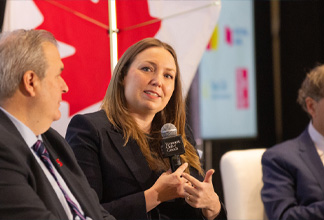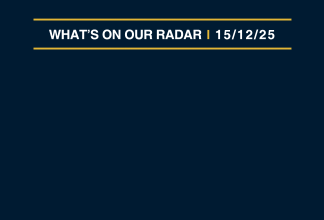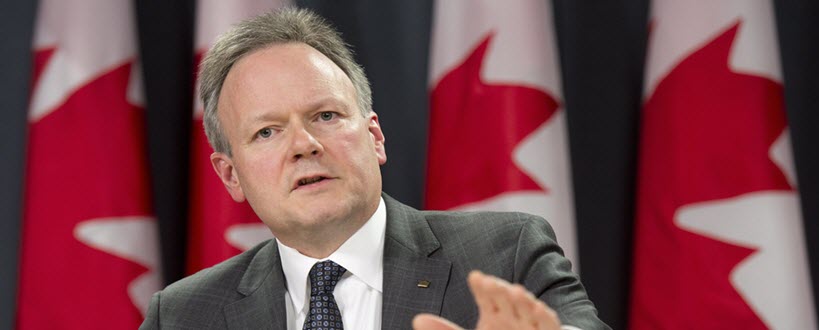What's Up With All The Rate-Hike Talk?
Written by Sandra Mills
Published on July 7, 2017
minute read
Share:
*Update: On July 12, the Bank of Canada raised its benchmark interest rate to 0.75 per cent from 0.50 per cent. See the full story here.
First off…just what is a rate hike? It's an honest question, really, since Canada hasn't seen one in nearly seven years.
Most recently, the rate making headlines is the Bank of Canada's target for the overnight rate, also known as the policy interest rate or benchmark rate. Right now, that sits at 0.50 per cent. It dictates the interest rate at which banks borrow and loan money between each other overnight. Perhaps most importantly — and a big reason it garners so much attention — is that it's a strong indicator as to where other interest rates are headed, like those for mortgages and consumer loans.
When the Bank of Canada raises its overnight target rate, what it's really aiming to do is slow down borrowing and spending to keep inflation in check.
Why Now?
Speculation around a rate hike was fueled in June when Bank of Canada Governor Stephen Poloz suggested the current ultralow interest rates have "done their job" in helping the economy move past the effects of low oil prices. He also noted the Canadian economy showed "surprisingly" strong growth in the first quarter of the year. His comments helped send the Canadian dollar to a four-month high on June 28 (and it's continued to strengthen since then), since higher rates — or the prospect of higher rates — can attract more interest in Canadian investments.
While inflation is currently sitting well below the Bank of Canada's target of 2 per cent, which some market watchers believe will keep the central bank on hold, momentum is building in several key areas of the economy such as job gains and retail sales. On top of that, the low-rate environment and soaring house prices in many parts of the country have meant increased debt loads for Canadians, also of concern to the Bank of Canada. In the first three months of this year, Canadians owed a near record $1.67 for every dollar of household disposable income, Statistics Canada data shows.
Why Should I Care?
The fact is, a rise in short-term interest rates usually leads to increases in other rates. For example, a higher rate could mean an increase in your mortgage interest rate, depending on whether you've locked in or have a variable rate. Also, if you have a loan or a line of credit, you might notice your minimum-payment requirements start to increase. Banks often take direction from the Bank of Canada's overnight rate when setting their prime lending rate, or "prime rate," which is the rate variable mortgages and some loans — like lines of credit — are tied to.
What about stock and bond investments? That's where things can get a little more complicated. When interest rates rise, bond prices typically fall. That's because a bond issued previously at a lower interest rate, or coupon, becomes less attractive than new bonds issued with a higher coupon, meaning its market price needs to adjust downward. Yields, however, move in the opposite direction to prices, so rate hikes generally mean a rise in bond yields. In short, when interest rate rise, new bonds can look more attractive thanks to those higher yields.
As for equities, rising interest rates can sometimes cause investors to take a pause — although that's not always the case. Rising rates can mean higher borrowing costs for some companies, which can in turn affect earnings growth potential. Conversely, rising rates related to economic optimism can sometimes mean increased stock prices.
Also, interest paid on your savings, deposits and GICs may trend higher, depending on what you hold. And a stronger Canadian dollar can make those cross-border shopping trips a little easier on the pocketbook.
When?
The Bank of Canada cut interest rates twice in 2015, leaving the current 0.50% in place since July of that year. However, the recent change in tone from the Bank of Canada may mean a change is coming as early as July 12, which is the the central bank's next monetary policy meeting. The Bank sets eight fixed dates each year to announce whether or not it is making a rate change. After July, the next date falls on Sept. 6.
RBC Direct Investing Inc. and Royal Bank of Canada are separate corporate entities which are affiliated. RBC Direct Investing Inc. is a wholly owned subsidiary of Royal Bank of Canada and is a Member of the Canadian Investment Regulatory Organization and the Canadian Investor Protection Fund. Royal Bank of Canada and certain of its issuers are related to RBC Direct Investing Inc. RBC Direct Investing Inc. does not provide investment advice or recommendations regarding the purchase or sale of any securities. Investors are responsible for their own investment decisions. RBC Direct Investing is a business name used by RBC Direct Investing Inc. ® / ™ Trademark(s) of Royal Bank of Canada. RBC and Royal Bank are registered trademarks of Royal Bank of Canada. Used under licence.
© Royal Bank of Canada 2025.
Any information, opinions or views provided in this document, including hyperlinks to the RBC Direct Investing Inc. website or the websites of its affiliates or third parties, are for your general information only, and are not intended to provide legal, investment, financial, accounting, tax or other professional advice. While information presented is believed to be factual and current, its accuracy is not guaranteed and it should not be regarded as a complete analysis of the subjects discussed. All expressions of opinion reflect the judgment of the author(s) as of the date of publication and are subject to change. No endorsement of any third parties or their advice, opinions, information, products or services is expressly given or implied by RBC Direct Investing Inc. or its affiliates. You should consult with your advisor before taking any action based upon the information contained in this document.
Furthermore, the products, services and securities referred to in this publication are only available in Canada and other jurisdictions where they may be legally offered for sale. Information available on the RBC Direct Investing website is intended for access by residents of Canada only, and should not be accessed from any jurisdiction outside Canada.
Explore More

7 Ways to Get Ahead Financially in 2026
How you might invigorate your finances and put your money to work more intentionally this year
minute read

Economic Outlook: Uncertainty is Here to Stay, So What's Next?
Takeaways from the Economic Club of Canada’s Annual Event
minute read

3 things: Week of December 15
What the Inspired Investor team is watching this week
minute read
Inspired Investor brings you personal stories, timely information and expert insights to empower your investment decisions. Visit About Us to find out more.







